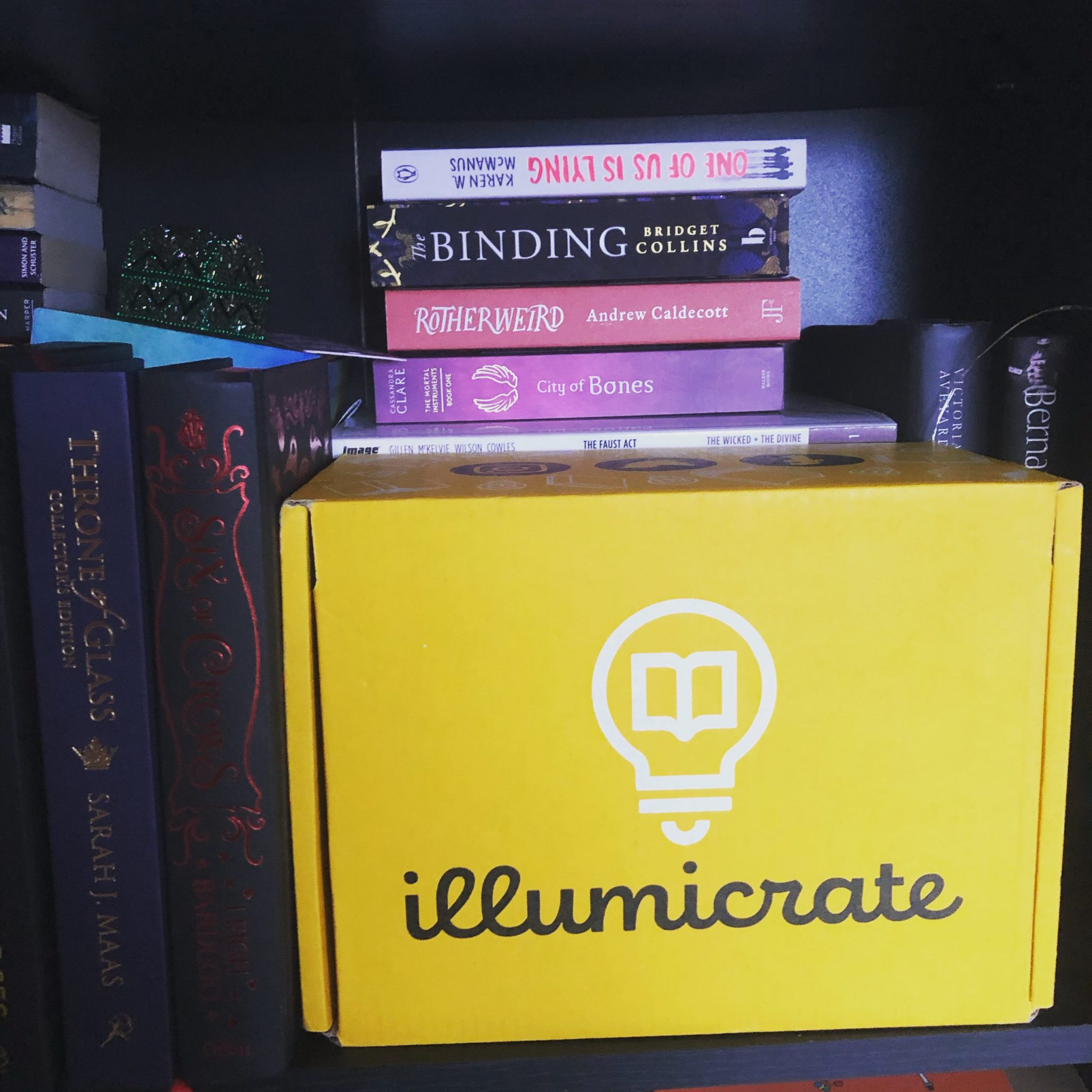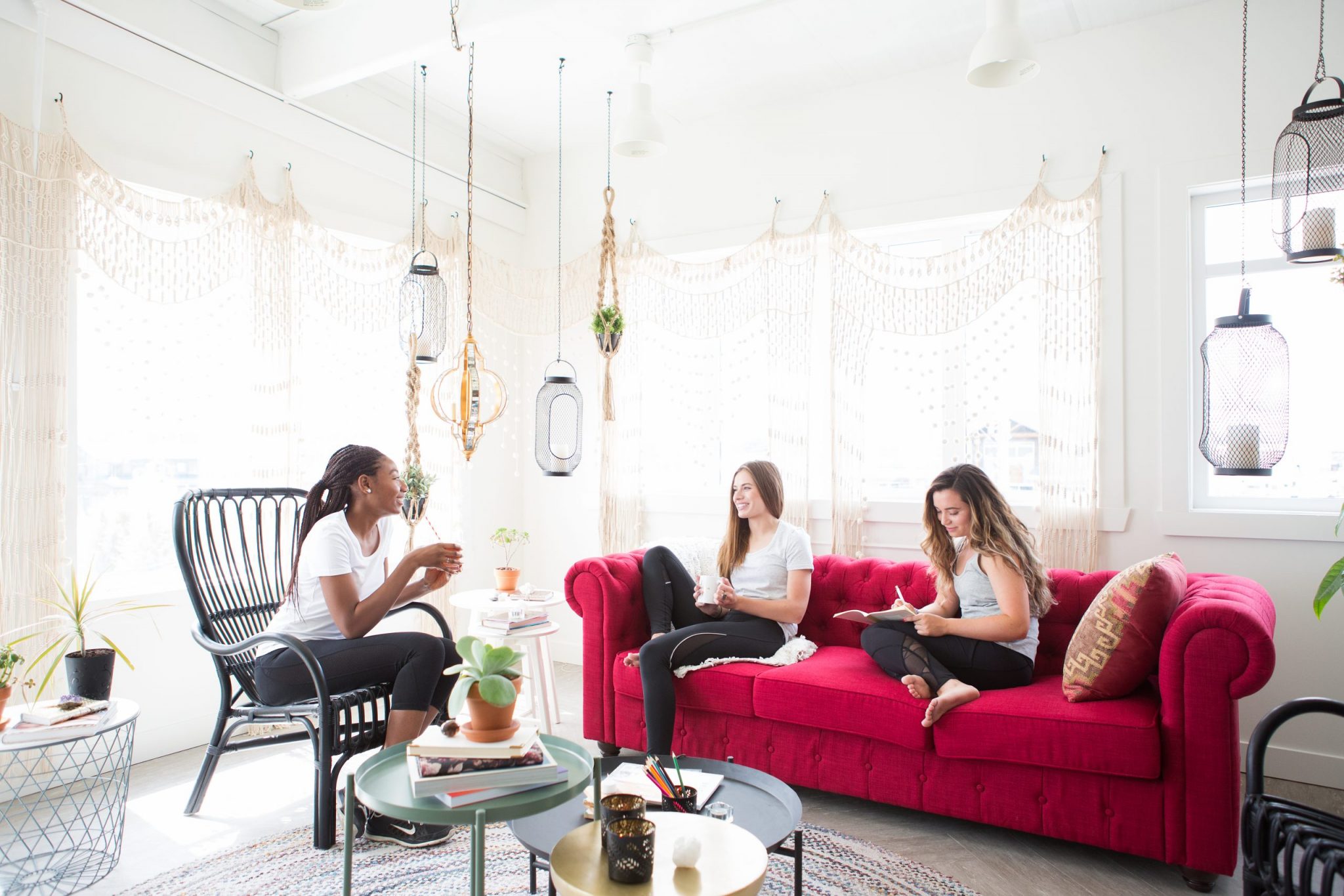using book box subscriptions to read more books
i’ve started another reading challenge. i didn’t do it last year, i only managed about 26/52. i started reviewing the books on the blog, and i might do that again this year too however most of my bookish content can be found on instagram – you can follow me if you like @katcandyfloss where i’ll be doing a weekly bookish chat talking about what i’m reading and how i’m getting on with the reading challenge. you can also find and follow me on goodreads if you like!
what is illumicrate book box subscription?
so illumicrate is a book subscription service that offers you a chance to purchase a book box which features new books to read and some bookish merchandise. each month there is a different theme. i think its a great way to broaden your tastes, find new authors and have some gorgeous collectible books, some of which are signed or collectors editions. there are also special boxes available for book releases of favourited authors, limited edition books with stencil sprayed designs on the edges and unique covers. its the perfect subscription for book lovers.

how much does illumicrate cost?
the illumicrate book box costs £34 per month including uk standard postage. illumicrate also ship internationally. subscription spots are limited so once you’re subscribed, you’re renewed and can carry on but if you are new then you have to wait for spots to open up, usually at the start of each month. occasionally you might have the chance to buy past illumicrate boxes too however the retail store is not like a proper retail store, once stock is gone, it’s gone and the focus is absolutely on the book subscription spots. there’s also a collectible pin club that you can subscribe to which gives you a bookish pin each month. alternatively, if you don’t want all the stuff there are book only options too so there are plenty of options for book lovers.
unboxing january illumicrate book box subscription with the strength within theme
the theme for january was the strength within and i’ve done an unboxing video which you can watch her if you like
i’ll be joining in with the january photo challenge in early february and posting more pictures on my instagram if you want to see how i’ve styled those then you’re welcome to follow me! please let me know if you’re joining in with the challenge too.
what’s inside the box?
inside the box were two books, one hardback and one paperback, a book mark, a collectible magentic coin, a hat, a coin purse, a bookmark, a holographic print, an authors letter and a reading light. i think my favourite item was the reading light because i know it’s going to come in handy and it’s really practical. all the items are really lovely in the box although i think the least used would be the gideon the ninth coin purse – just because i have a pretty hefty regular purse! however, it’s the perfect size to some of my smaller bags so can be put to use then. otherwise, my plan for book merch i wont use will be to gift it on, give it to my daughter or perhaps try and sell it. i really want more bookish items but i know not everything will be practical or to my taste, as is every subscription service where the items are a surprise.

i am pretty excited about the two books. both books are signed but i particularly love the sisters grimm gold and black design and black sprayed edges. the book sounds really interesting too so i’m looking forward to reading it and travelling into this version of cambridge. it sounds like a really enjoyable read. the next book is infinity sons and from the blurb sounds quite interesting. it’s a paperback so it will be nice and easy to read and i imagine i will get through that one pretty quickly unless i join any readalongs of the book and pace myself a little bit!
my reading challenge
One of my goals for 2020 is to read 52 books or around one a week. Some might be new, some are ones I’ve had for a while or been meaning to read, some I haven’t quite finished yet and some will be recommendations from others. You can see all the books I’ve read so far on my Good Reads 2020 Reading Challenge.










